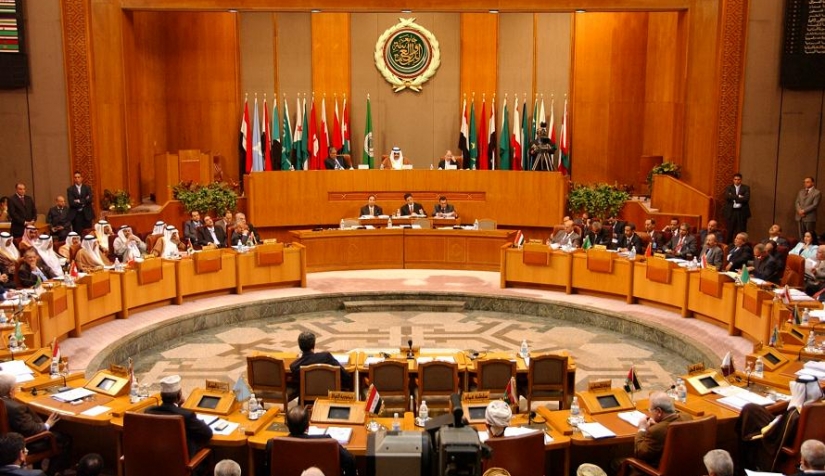Hossam Zaki, Assistant Secretary-General of the League of Arab States, said that the Arab countries do not wish to oppose or challenge the US sanctions imposed on the Syrian regime.
France 24 channel quoted Zaki as saying: “We talked in general about the reconstruction of areas under the control of the Syrian government, but everyone knows that there are comprehensive and harsh US sanctions, and we have not monitored any party that has the intention to clash with or oppose the United States, and no one wants to take a chance.”
Zaki denied the existence of conditions in return for Syria’s return to the Arab League, but rather “understandings that are desirable to be accepted by all parties, including the Syrian side, so that the return is a form of settling the situation in Syria.”
He pointed out that the items “are present in the Amman Declaration, which talks about combating drugs, the return of refugees and the political settlement in Syria, and this declaration was attended and signed by the Syrian foreign minister.”
Zaki called on the Syrians to be patient, pointing out that “what has been corrupted over the years will not be fixed overnight.” The US Congress proposed the “Law on Combating Normalization with Assad”, sponsored by the Republican and Democratic parties, in the first response to the Arab countries’ rapprochement with the Syrian regime, and a move that is considered the strongest since the adoption of the “Caesar” Act.
The American Coalition for Syria, which includes ten American organizations specialized in Syrian affairs, is active in Washington, D.C., and announced that Congress introduced the aforementioned law last Thursday.
The coalition indicated that this law came after efforts it described as “painful” that lasted for nearly five months, stressing that this move is “the strongest, largest and most important since the adoption of the Caesar Act in 2019, with very important repercussions for the Syrian, Arab and international situation.”
The draft law bears the name “The Anti-Normalization with the Assad Regime Act of 2023,” and aims to achieve several purposes, most notably “banning any US government measure that would recognize any Syrian government headed by Bashar al-Assad or normalize relations with it.”
The project also aims to enact new laws, update, strengthen and expand previous laws related to Syrian affairs.
As well as sending political and legal messages to countries that have normalized their relations with the Syrian regime, or are seeking to normalize with it, about the dire legal, political and economic consequences that will result from this act.
The law will also serve as a notification to the Biden administration that “the issue of resuscitating life in the political person of a war criminal like Bashar al-Assad is completely rejected by both parties and is irreversible, and that the two parties insist on implementing all the laws in force against al-Assad, and they will not allow it to be imposed as a fait accompli.”
The law affirms that the only solution to get Syria out of its crisis to a better future is for the Syrians to come together on a joint project in accordance with UN resolutions away from Assad, after which sanctions can be lifted and Syria can be rebuilt.
Five Sections of the “Law on Combating Normalization with Assad”
The draft law is divided into five sections, related to the prohibition of recognizing Assad or normalizing relations with any government he heads, and opposing the normalization of relations with him by other countries.
It also includes a section related to the Caesar Act, and amending it to affect any foreign party that provides financial or technical support to the Syrian regime, participates in the craft of humanitarian aid, or concludes any deal related to energy sources with it.
The law also includes a section that confronts the Syrian regime’s manipulation of the United Nations system, such as the employment of relatives of officials or persons listed on sanctions lists in the UN offices in Syria, as well as the restrictions it imposed on the United Nations mission in providing aid and services.



















